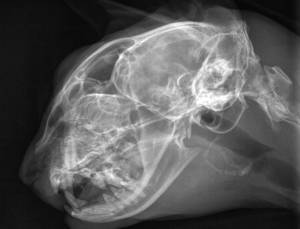If a cat is unable to urinate, then they may be suffering from urinary blockage, which is a disease that has the potential to be lethal. This occurs when the cat is unable to relieve themselves as a result of a blockage in their urinary system. If treatment is delayed, there is an increased risk of complications and possibly death.
How to recognize that your cat has a urinary problem
If your cat is experiencing difficulties with their urinary system, it is crucial to identify the indications and take necessary measures to avoid any additional problems. The following are primary and secondary signs that suggest your cat may be facing a urinary issue:
Basic signs
- Trying to urinate often but not producing a lot of urine
- Crying or making noise while trying to urinate
- Presence of blood in the urine
- Urinating outside of the designated area
- Experiencing difficulty or spending too much time trying to urinate
- Excessive licking of their genital area
Secondary signs:
- Decreased desire for food
- Fatigue or lower levels of energy
- Throwing up- Seeking seclusion or staying alone
- Insufficient hydration
- Accidental urination inside the house
Causes

There are several potential causes for urinary problems in cats, including:
- Infections in the urinary tract
- The presence of stones or crystals in the bladder
- Blockages in the urinary system
- Swelling of the bladder or urethra
- A condition called Feline Lower Urinary Tract Disease (FLUTD)
If these conditions are not treated, they can result in significant discomfort and pain for your cat and potentially cause more serious issues. It is important to determine the root cause in order to provide the correct treatment.
Treatment
The treatment for urinary problems in cats will depend on the specific diagnosis and severity of the condition. Some common treatment options may include:
- Antibiotics to treat urinary tract infections
- Dietary changes to promote urinary health and prevent the formation of crystals or stones
- Medications to relieve pain and discomfort
- Fluid therapy to flush out the urinary system and promote hydration
- Surgery to remove bladder stones or address urinary blockages
It is important to follow the veterinarian’s recommendations and monitor your cat’s progress. With timely treatment and proper care, most cats can recover from urinary problems and regain their normal urinary function.
Remember, if your cat is showing any signs of a urinary problem, it is crucial to seek veterinary care promptly to prevent any potential complications.
How to Prevent Urinary Issues in Cats
Preventing urinary issues in cats is crucial for their health and well-being. Here are some tips to help prevent these problems:
- Keep yourself hydrated. If you want your cat to drink water regularly, you should give it to it fresh and clean every day.
- Diet is crucial, so make sure your cat gets the high-quality cat food your physician recommends.
- You should take your cat to the doctor right away if it has a history of urinary difficulties or if it feels uncomfortable when peeing.
Tips for First-Time Cat Owners
- Provide Fresh Water: Make sure your cat has access to fresh, clean water at all times. Hydration is essential for maintaining urinary tract health.
- Feed a Balanced Diet: Ensure your cat’s diet is well-balanced and appropriate for their age and health condition. Consult with your veterinarian to determine the best food for your cat.
- Avoid Dry Food: Dry cat food is often low in moisture, which can contribute to urinary issues. Consider incorporating wet or canned food into your cat’s diet to increase their water intake.
- Monitor Litter Box Habits: Keep an eye on your cat’s litter box habits. If you notice any changes in urinary frequency or difficulty, consult your veterinarian immediately.
- Keep the Litter Box Clean: Regularly clean your cat’s litter box to ensure proper hygiene. Cats can be sensitive to dirty litter boxes, which may discourage them from using it.
- Provide Enrichment: Engage your cat in regular play and provide mental stimulation. This helps to reduce stress, which can be a contributing factor to urinary issues.
- Promote Regular Exercise: Encourage your cat to engage in regular exercise to maintain a healthy weight. Obesity can increase the risk of urinary problems.
- Offer Vertical Spaces: Cats enjoy climbing and perching on high surfaces. Provide vertical spaces such as cat trees or shelves to allow them to satisfy their natural instincts.
Remember, prevention is key when it comes to urinary issues in cats. By following these tips and providing proper care, you can help keep your feline friend healthy and happy.





